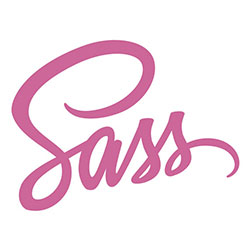JavaScript Speech Recognition

Speech recognition software is becoming more and more important; it started (for me) with Siri on iOS, then Amazon's Echo, then my new Apple TV, and so on. Speech recognition is so useful for not just us tech superstars but for people who either want to work "hands free" or just want the convenience of shouting orders at a moment's notice. Browser tech sometimes lags behind native technology but not for speech recognition: the technology in the browser today and it's time to use it: the SpeechRecognition API.
SpeechRecognition
For as advanced of a concept speech recognition is, the API to use it is fairly simple:
var recognition = new (window.SpeechRecognition || window.webkitSpeechRecognition || window.mozSpeechRecognition || window.msSpeechRecognition)();
recognition.lang = 'en-US';
recognition.interimResults = false;
recognition.maxAlternatives = 5;
recognition.start();
recognition.onresult = function(event) {
console.log('You said: ', event.results[0][0].transcript);
};
The first match is at the event.results[0][0].transcript path; you can also set the number of alternatives in the case that what you're listening for could be ambiguous.
You can even add your own terms using the SpeechGrammarList object:
var grammar = '#JSGF V1.0; grammar colors; public= aqua | azure | beige ... ;' var recognition = new SpeechRecognition(); var speechRecognitionList = new SpeechGrammarList(); speechRecognitionList.addFromString(grammar, 1); recognition.grammars = speechRecognitionList;
There are several events emitted during the speech recognition process, so you can use the following snippet to follow the event timeline:
[
'onaudiostart',
'onaudioend',
'onend',
'onerror',
'onnomatch',
'onresult',
'onsoundstart',
'onsoundend',
'onspeechend',
'onstart'
].forEach(function(eventName) {
recognition[eventName] = function(e) {
console.log(eventName, e);
};
});
A few caveats about the using speech recognition:
- Chrome ends the listener after a given amount of time, so you'll need to hook into the
endevent to restart the speech listener - If you have multiple tabs using the speech listener API, you may experience the listener ending quickly
annyang!
The excellent annyang library provides a neat API for listening to for desired commands, all in an awesome 2KB package. The following is a sample usage of annyang:
// Let's define our first command. First the text we expect, and then the function it should call
var commands = {
'play video': function() {
document.querySelector('video').play();
},
'pause video': function() {
document.querySelector('video').pause();
}
'* video': function(word) {
if(word === 'play') {
document.querySelector('video').play();
}
else if(word === 'pause' || word === 'stop') {
document.querySelector('video').pause();
}
}
};
// Add our commands to annyang
annyang.addCommands(commands);
// Start listening. You can call this here, or attach this call to an event, button, etc.
annyang.start();
Note that not only can you provide an exact phrase to listen for, but you can also provide a wildcard string; the wildcard string is useful in cases where you want to prefix your commands, much like saying "Siri: (instructions)" or "Echo: (instructions)".
It's so cool that speech recognition is available within the browser today. If you want to see an awesome application of this feature, check out Mozilla VR's Kevin Ngo's amazing demo: Speech Recognition + A-Frame VR + Spotify. You could even use this API to listen for "wtf" when someone reviews your code! Take some time to play with this API and create something innovative!





The Speech Recognition API has been disabled in Chromium and Chromium derivatives like Electron but it looks like if you want the feature you can use their Cloud Speech API.
Any idea why it was disabled?
Probably, a better initializer:
Another speech recognition interface is https://www.textfromtospeech.com/uk/voice-to-text/
Has anyone else had problems using this and other speech recognition on Android Nougat? Is Google pushing everyone to use the Cloud Speech API?
recognition. lang = ‘en-US’ ; how can i put multiple language. plse help me thank
Hello David,
I am really not finding a way to add speech recognition to my web app, that would run on either chrome or safari. both support the webspeech synthesis, but not recognition. I want to somehow add a simple command recognition, based on which my app would do different things. How do I go about…I have tried everything but cannot seem to get this to work on iphone.
for cordova lite app android/ios – is that wont recognize:
I am unable to find the solutions, please guide me
Could someone please help me a bit out.
The demo page works in Google Chrome on my PC and on my Android Phone. But when I use the code as described myself it does work on my PC but not on Android.
Can someone please give a working example of the pure code for Android.
Can we assign a specific corpus with limited words instead of recognizing everything we say ?